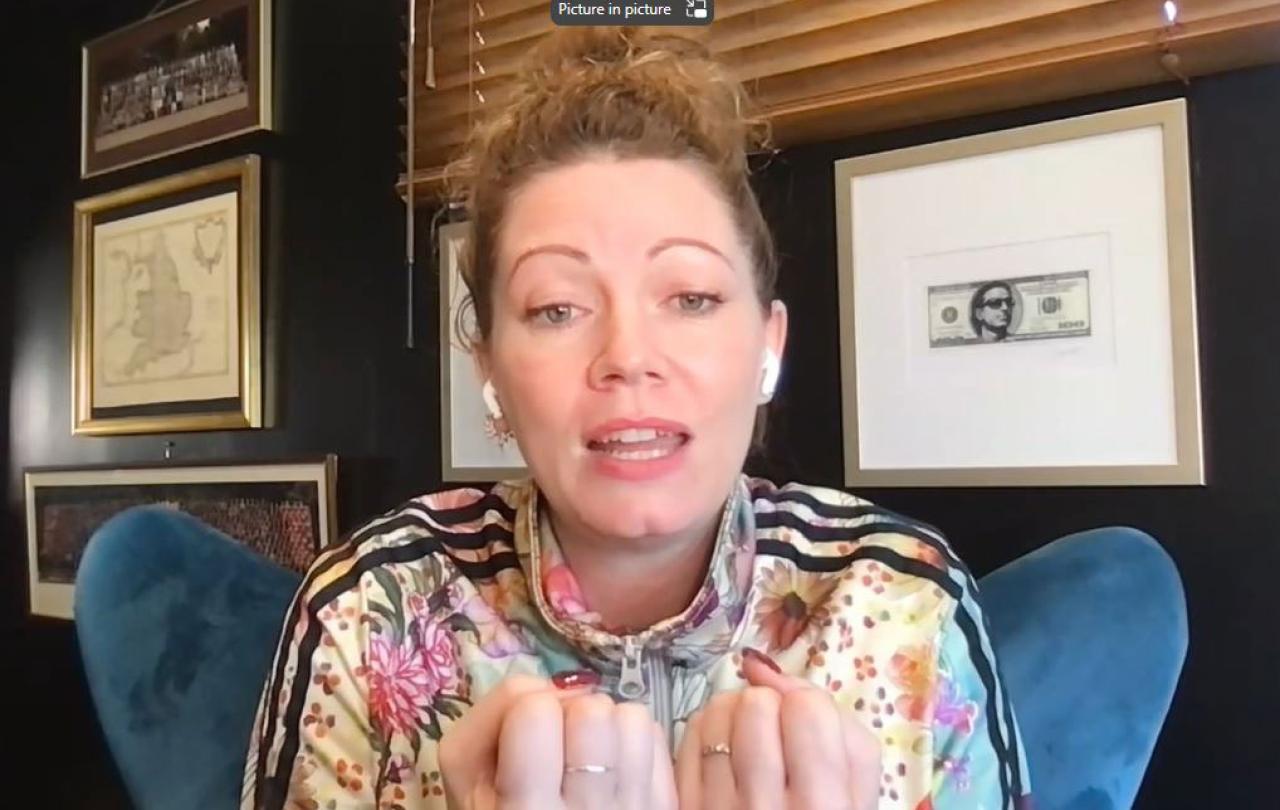This has been a tremendously difficult review to write. I’ve written and re-written this review for two weeks now. You will see why.
The Zone of Interest begins idyllically. A family is picnicking by a lake. The men swim, the women pick berries in the woods. It's a gorgeous sunny day. The family happily drive home down an evocatively headlamp-lit country road. The father walks through their palatial house, turning off every light. The next morning the family are gathered outside to give the father his birthday present: a canoe. Two boys lead their blindfolded father gently down the steps from the house to the garden. The garden is magnificent: filled with flowers and immaculately kempt.
The father is wearing an SS uniform. The camera pans round the garden. Behind the garden wall you see glimpses of barbed wire, belching chimneys, rows of dormitories. You hear shouts, moans, cries, gunshots. This is no ordinary house, no ordinary garden, no ordinary family. This is the home of SS-Obersturmbannführer Rudolf Höss, his wife Hedwig, and their five children. This is Auschwitz. Höss runs it. Hedwig runs their beautiful home. The children run around. That is the next 100 minutes of film. It's a realist family drama from the 1940s. The children are children, the wife is house-proud to a fault, and the husband is hard-working, ambitious, and keen to do a good job. I don’t want to say much more. You simply need to go and see the film.
When Hannah Arendt published Eichmann in Jerusalem: A Report on the Banality of Evil it was controversial. Many commentators misunderstood or misrepresented her point. Evil acts - especially an evil act as totemic as the Holocaust - are not ‘banal’. The people who commit evil on such a scale often can be. A genocidal machine of such scale and complexity needs a tremendous number of cogs… they can’t all be murderous sociopaths. Eichmann was banal in himself - he was of average intelligence, uncreative in his thinking, a follower of fads and joiner of organisations.
This is exactly how Rudolf and Hedwig are presented. Christian Friedel plays Höss with an almost continual ambience of low-level boredom. Pillow-talk with his wife, reading to his children, a discussion about the most efficient way to incinerate the Jews in his camp, is all spoken with roughly the same expression and tone. He clearly wants to do well in his work, but it doesn’t matter what the work is. Sandra Hüller gives Hedwig a marvelous, slightly nervous energy. She always seems to be keeping a combination of grasping envy and slimy smugness just barely contained beneath the surface of her features. She can’t think of much beyond the order of her house, the beauty of her garden, and her status among other SS wives. Their quality of attention is essentially absent.



